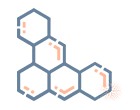Congenital Disorders of Glycosylation
Congenital Disorders of Glycosylation (CDG) are a group of rapidly expanding metabolic disorders that arise due to abnormal protein or lipid glycosylation. There are difficulties trying to diagnose them because they broadly affect many organs and functions, demonstrating a clinical heterogeneity.




